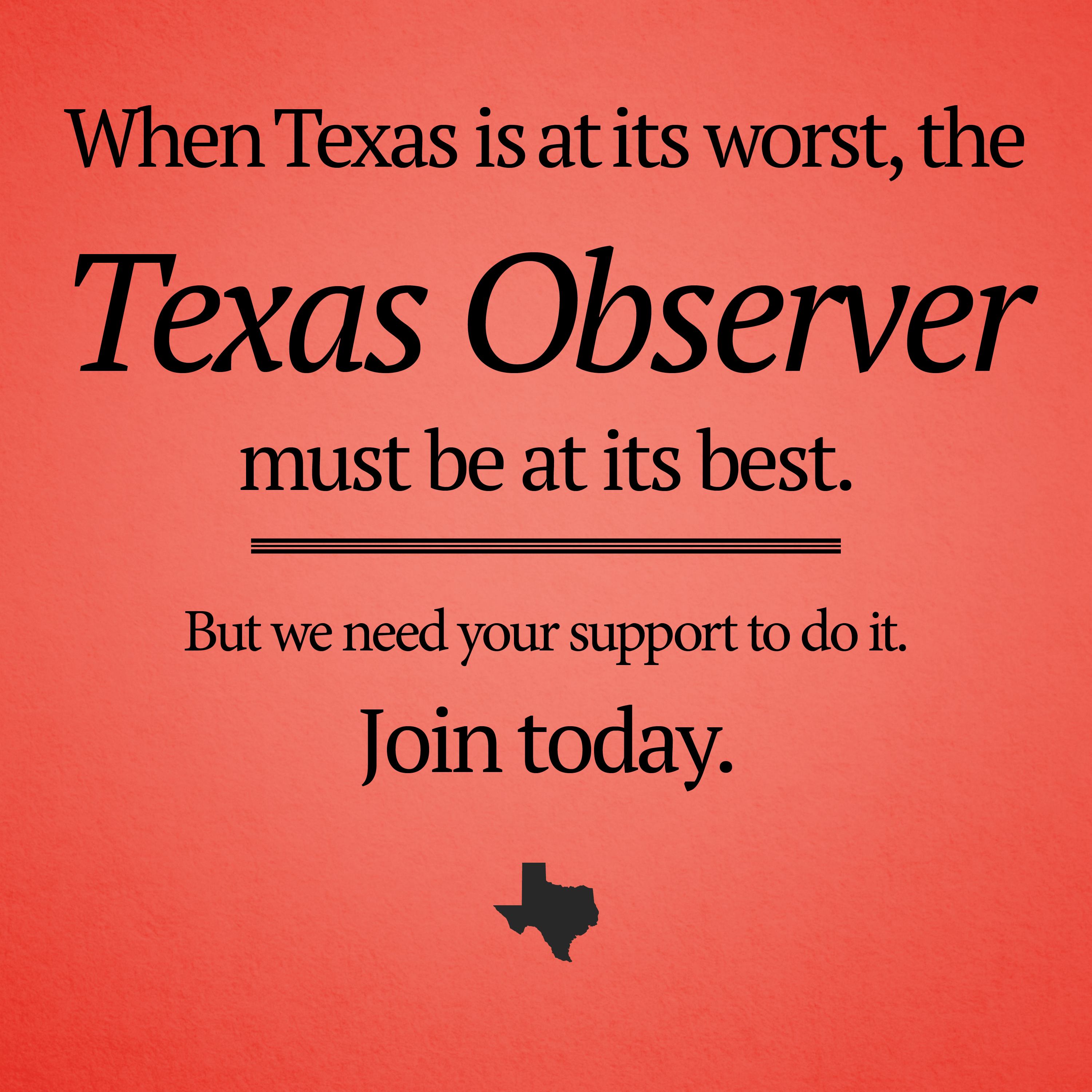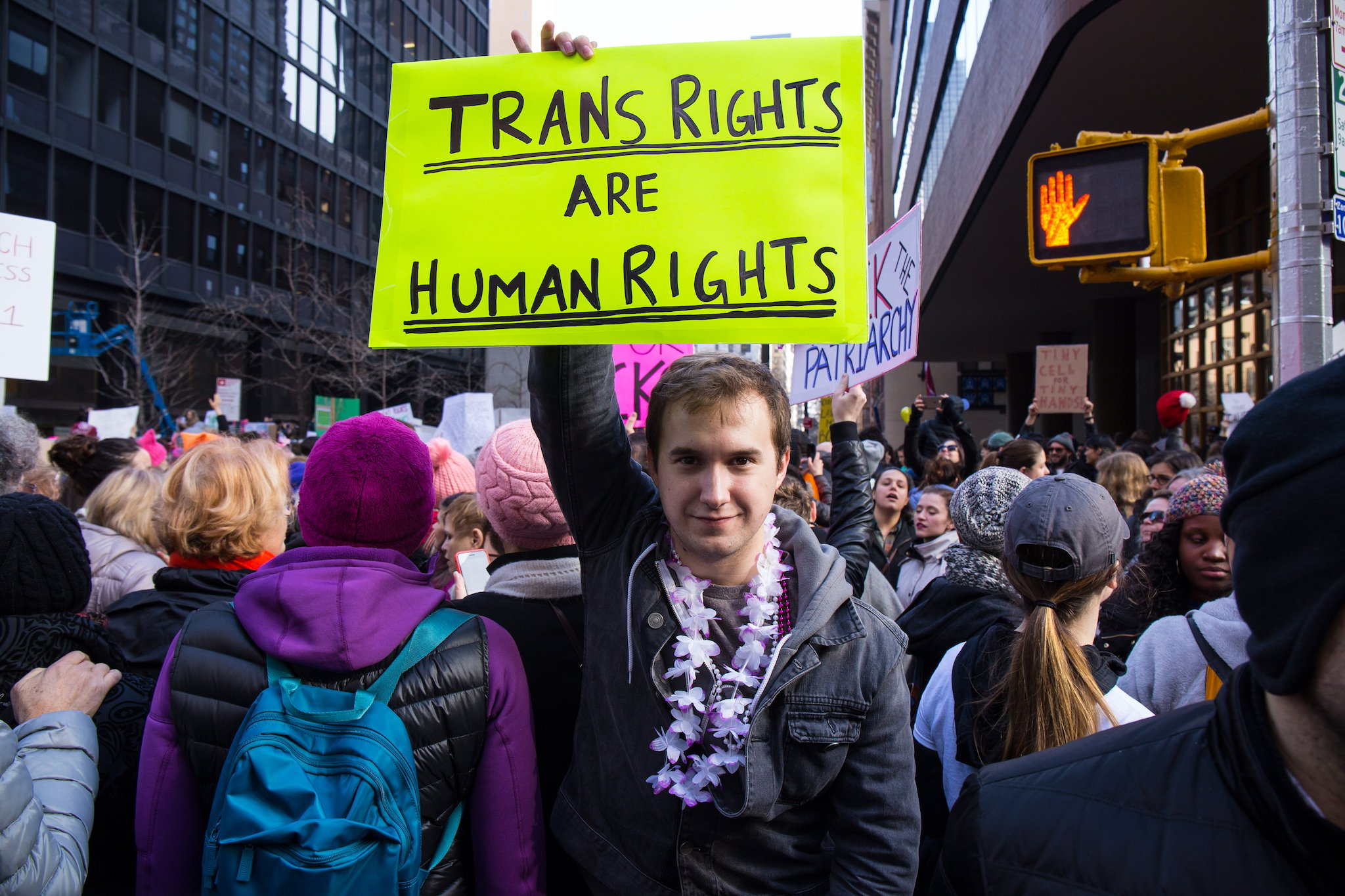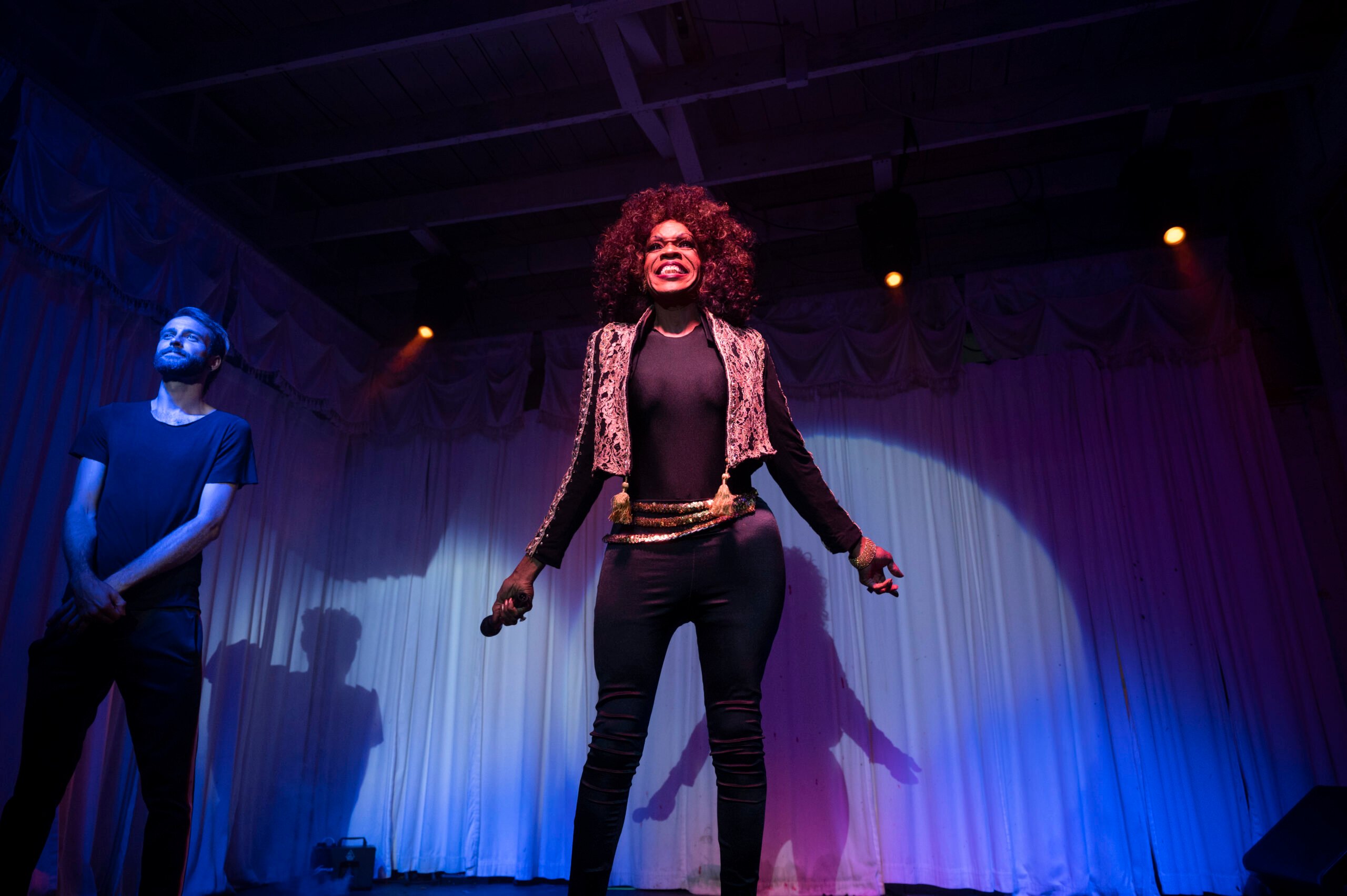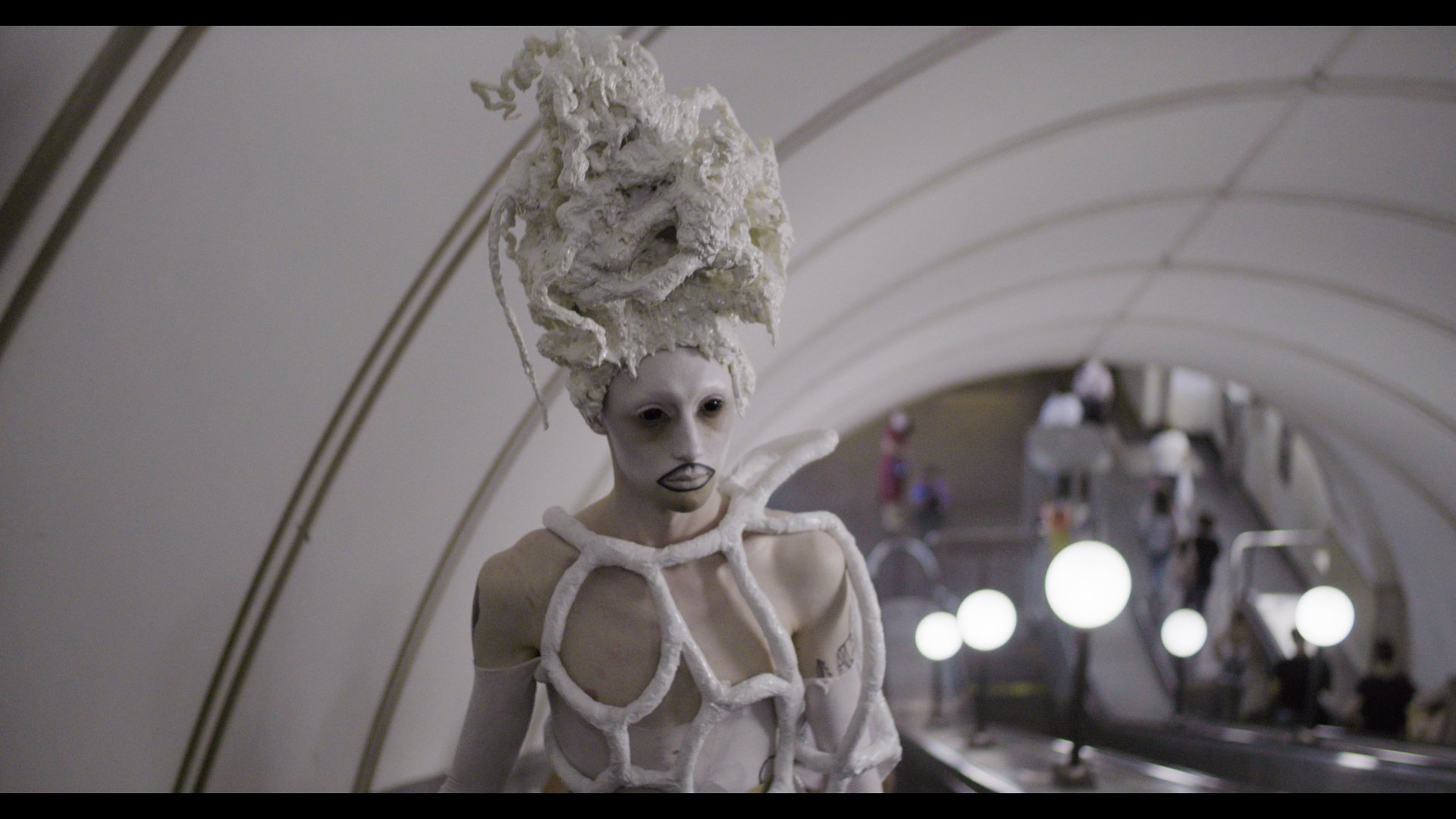
Confronting Queer Oppression in Moscow … And America
Queendom, a documentary that recently premiered at the SXSW film festival, should leave viewers—especially LGBTQ+ viewers—shaken.
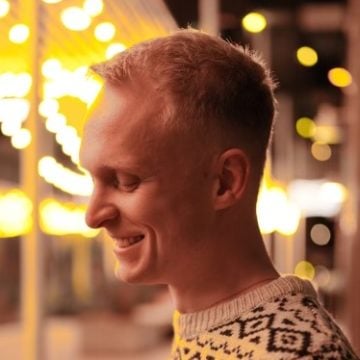
This is part of our coverage of South by South West (SXSW) 2023.
It’s difficult to view a documentary like Queendom as a member of the queer community, much less write about it, without noticing certain feelings arising. Most notable of those feelings is alarm. It is as much a profile of Gena, a queer artist and activist in Russia, as it is a cautionary tale and call to action for queers in America. Events in the film unfold like omens, and director Agniia Galdanova lets them stand for themselves without embellishment.
Queendom had its world premiere in Austin at the South by Southwest (SXSW) festival in the Documentary Competition earlier this month. The film was directed and co-produced by Galdanova, who was personally impacted by the open hostilities towards the LGBTQ+ community in Russia.
“As a teenager, I had a hard time accepting myself and constantly endured humiliation and beatings because of my ‘unfeminine’ look,” Galdanova told the media. She was “fascinated by the resilience and beauty of the drag queen community,” which led to her initial work on a potential documentary series following several drag queens across Russia. However, she “was mesmerized by Gena’s artistry and courage,” and the performer-protester became the protagonist of the documentary.
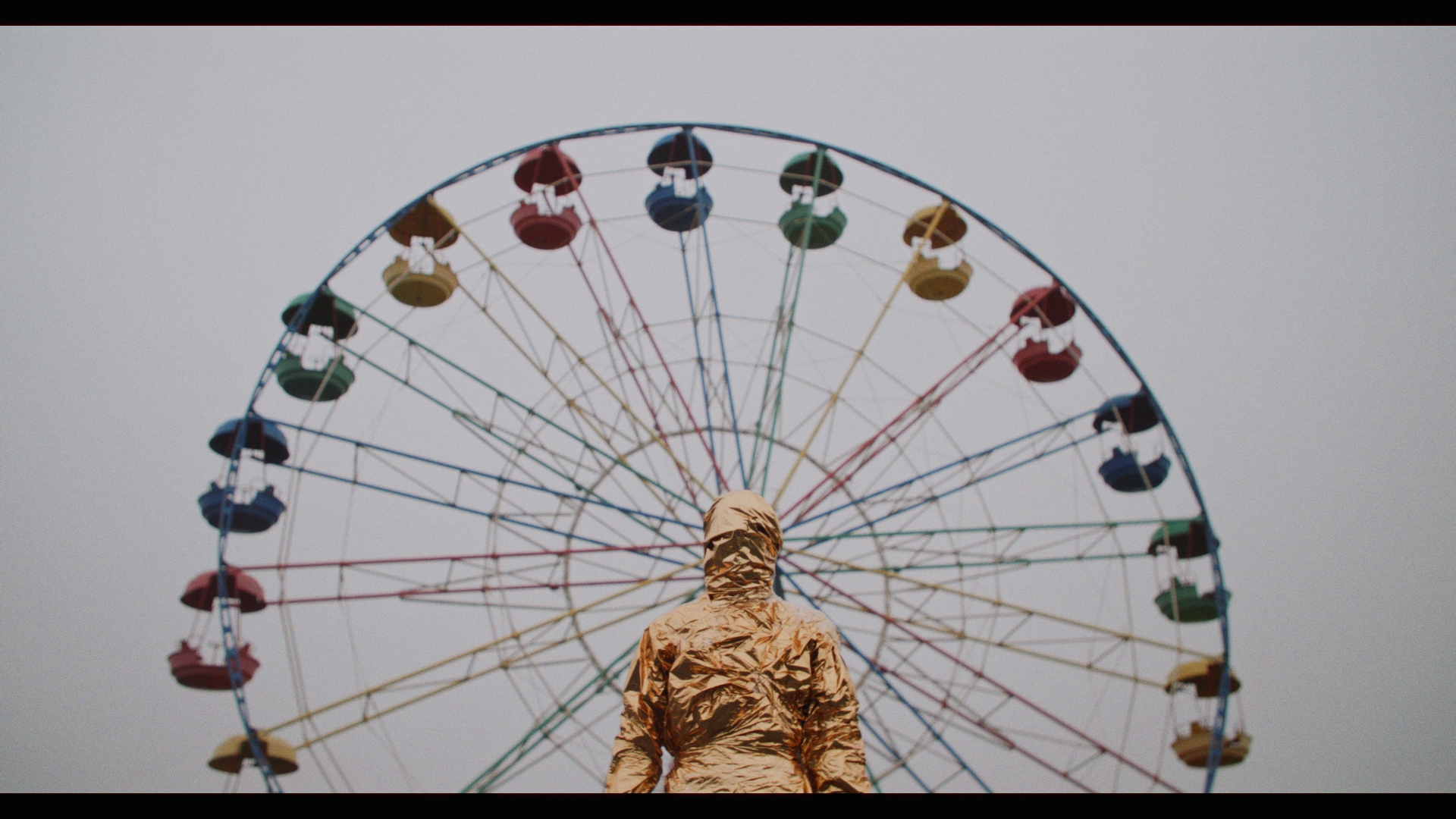
We learn little of Gena’s background directly—though we can glean an impression from her allusion to “the horrors I saw and experienced” during a discussion where she contextualizes her art. Gena stands in stark contrast to the world around her, as we are introduced to her hometown, the former largest Gulag camp, Magdalan, which sits on the Pacific Ocean on the far eastern edge of Russia. Here, her friend reminds her, “don’t forget we are surrounded by prisons. We have fear and subservience in our DNA.” This is reality for Gena: life under an oppressive regime, past and present, to which the levers of the state are easily applied to silence political dissenters.
In Magdalan, Gena lives with her grandparents. Her grandmother lovingly, albeit patronizingly, calls her “my little oddball,” while Gena and her grandfather regularly square off over what ultimately boils down to a difference in values and understanding about the nature of being in the world. While Gena works to establish herself through demonstrating her art, and as her grandfather puts it, “those social media ‘likes’ and shit,” he pushes her to pursue more traditional employment or at the very least get paid for her performances, remarking, “this is the time of capitalism.”
Gena’s relationship with her grandparents, even as she faces off against the state in protest of the Russian government’s actions in Moscow, remains at the crux of the film. According to Galdanova, “[they] love her even though they disapprove of how she expresses herself or even who she loves.” This is a relatable story to most in the LGBTQ+ community, who are not commonly privileged to experience unconditional love and support from their families. Even as Gena navigates “the danger of being queer in Russia,” we are made party to her regular phone conversations with her grandparents.
“Don’t forget we are surrounded by prisons. We have fear and subservience in our DNA.”
The documentary climaxes in Moscow, after Gena returns from Magdalan to resume her education. There, her courage and tenacity are put on full display. Gena goes so far as to wrap her bare body in barbed wire in the unforgiving Russian cold in protest of the war—though this is not included in the film. Awestruck, Galdanova remarked, “I could feel her fear, but I never saw her waver from her intention.”
But it is Galdanova’s style that captures life as Gena with Gena. One quickly notices the lack of a score, or any other music which might add levity or gravitas, to the scenes. While not lacking in artistry, the moments in Gena’s life that Galdanova captures are not inflamed with embroidery or exaggeration. Filming in Russia with such a provocative individual such as Gena was not without its risk, so subtlety was the name of the game. It was the film crew’s job to not attract attention, which in a way lends the perfect platform for Gena to shine in all her hyperbole.
Galdanova’s approach to film is inspired by “reality itself.” She immerses herself deeply within the subject at hand. About filmmaking, she said, “it’s not a job. It’s a lifestyle,” something many artists may relate to, especially those who seek to capture the true essence of life itself. In Queendom, there is no space between the camera and Gena, because, as Galdanova put it, “You have to be open to the world of possibilities and serendipity.” Basically, the story of Queendom, Gena’s story, revealed itself to her as she filmed it because she allowed it to happen.
Gena stands heroically against an oppressive state, but we—the queers, the drag queens, the nonbinary, the artists, and the individuals of America—should not think ourselves so distantly exempt from the machinations of a queerphobic state. The message of Queendom is not “it could happen here,” so much as “it is happening here.” Too many parallels can be drawn between the reality Gena faced in Russia to the one the queer community faces in America for one to sit comfortably without reflection.
Gena remarks that Russia is a prison, but doesn’t America, with its incarceration rates alone, more than adequately fit that bill? In the film, a protester, in reference to the Russian state, yells, “the police are with those fucks.” A simple, crude statement that nonetheless resonates with many American queers and anyone that’s faced off with fascists outside a drag show or perhaps at a peaceful protest for abortion rights. Do the bills passed in Republican-controlled state legislatures banning gender-affirming care not sound alarm? Let’s look at the Texas State Legislature, which is currently in the thrust of criminalizing drag.
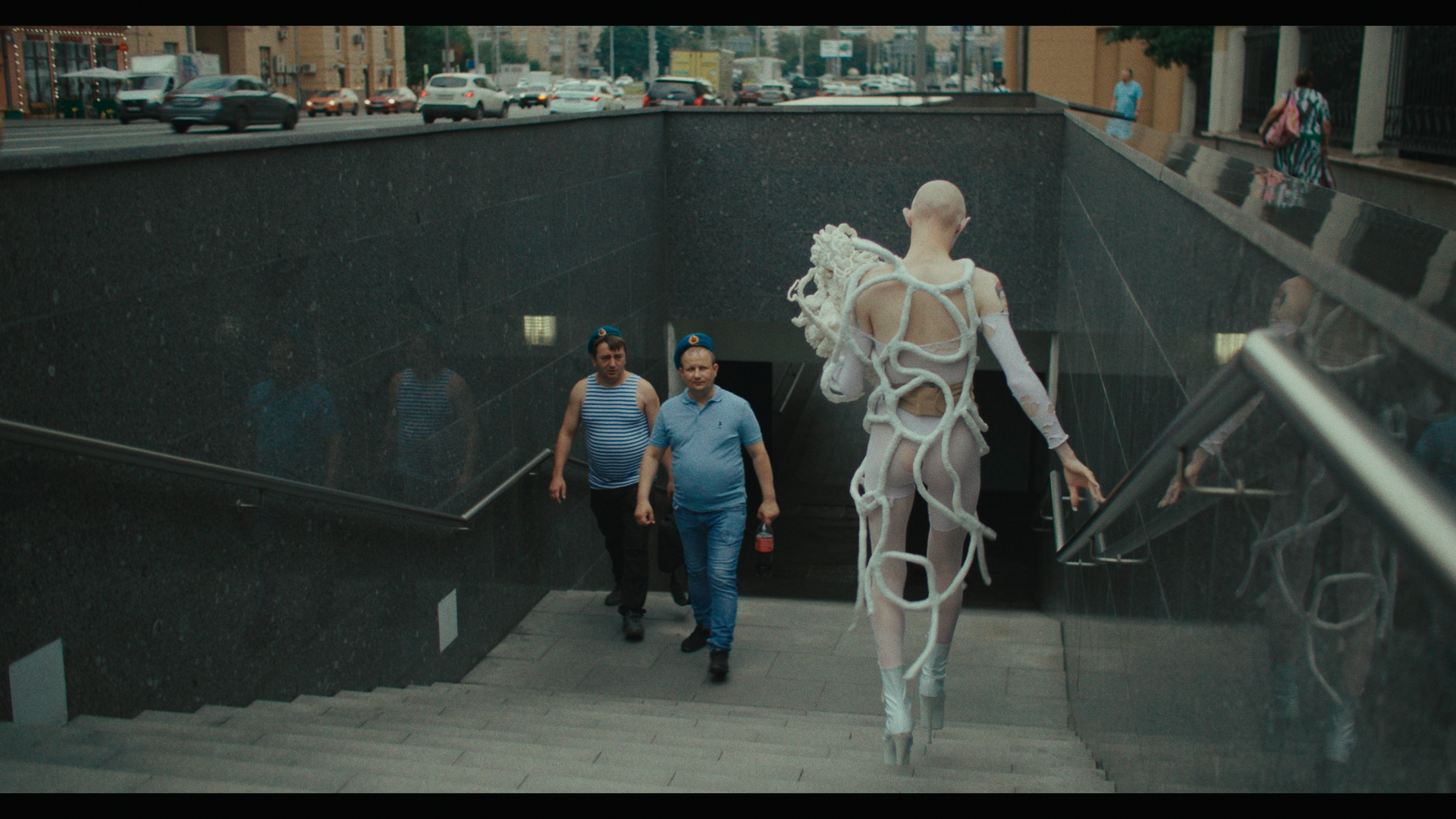
American media, even on the left, often paints Russia as an incomparable evil, but for two states so outwardly diametrically opposed, their political paths do not seem dissimilar.
A famous 1940s poem, written by the pastor Martin Niemöller, captures the danger of a false sense of safety as it leads through the sequence of groups targeted by the Nazi party in Germany leading to the Holocaust. An reinterpretation as it applies here might look like the following:
“At first they came for trans people, and I did not speak out–Because I was not trans.
Then they came for the drag queens, and I did not speak out–Because I was not in drag.”
But what about when they come for you? Given the chance, they will, if it benefits them. Look at all of American history. They’ve come for marginalized people since it began. This is why drag is important, because it’s more than just a form of self-expression or token entertainment for bachelorette partygoers. Drag is political. It is subversive, irreverent, and attention grabbing, and as Gena’s friend puts it, “All important issues deserve attention.”
Galdanova says, “I wish I could have seen someone like Gena when I was growing up.” Although many of us are now grown and living out our lives, relatively comfortably—for now—compared to the queers of Russia, we should take inspiration from Gena’s story. It may resemble our own soon enough. Love yourself and stand in affirmation of who you are without reservation, especially when the world turns against you.
